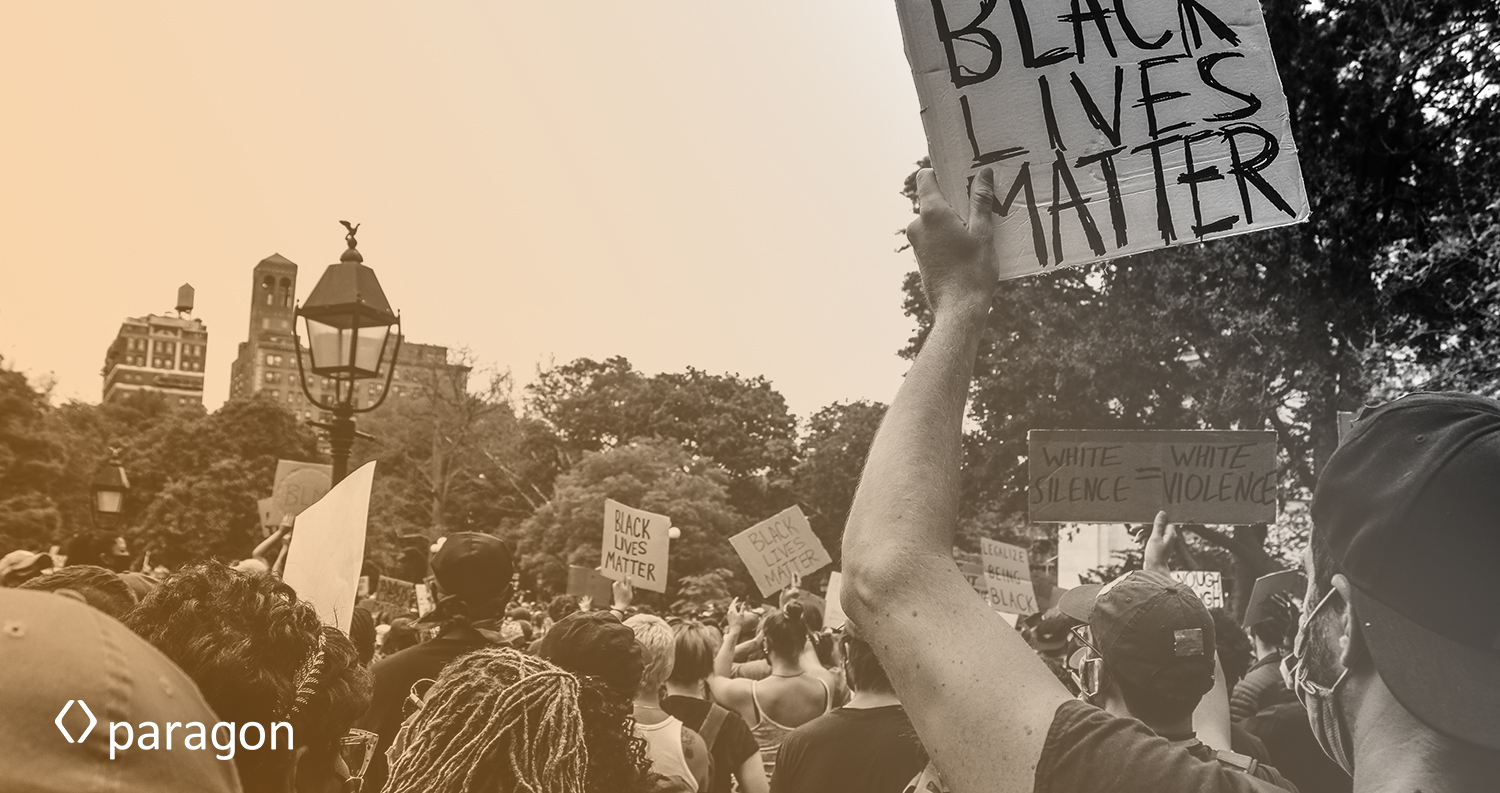What matters… in black and white
Tweeting about serious issues like racism is easy. Creating content that positions a brand as ethical is also a (socially distanced) walk in the park. But making a real difference – the sort of difference that influences people’s day-to-day lives – is much harder. In the light of the George Floyd protests, it will be interesting to see whether or not brands follow up their social media excitement with real action.
Their digital messages have had an immediate impact on the consumer, but changing workplace practices that affect employees, for example, takes time and money. So it’s not surprising that many companies focus on the former – and all that low-hanging marketing fruit that is just waiting to be picked – but struggle with the nitty-gritty of the latter.
And there’s no doubt that brands have pulled out all the stops when it comes to talking a good game. Streaming giant Netflix attracted more than a million likes for a post stating: ”To be silent is to be complicit, Black lives matter.” Twitter changed its profile image to a black-and-white update of its logo with the hashtag #BlackLivesMatter. L’Oréal trumpeted that “speaking out is worth it”.
Apple observed ‘Blackout Tuesday’. Apple Music focused on a single playlist ‘For Us, By Us’, which included exclusively black artists. Google added a supportive message beneath its search bar: ”We stand in support of racial equality, and all those who search for it.”
Even arch-rivals Nike and Adidas – two brands that rely heavily on the loyalty of black consumers for their profits – downed arms, signed a peace deal and, amazingly, joined forces. Nike launched a typically well-produced ad across social media, complete with deadly-serious piano music. The message: “Don’t think this doesn’t affect you…Let’s all be part of the change.”
Adidas was so impressed it retweeted the ad and chipped in with its own pearl of wisdom. “Together is how we move forward,” the German company tweeted, “together is how we make change.”
Great idea. But how exactly? Belinda Smith, global diversity ambassador at the World Federation of Advertisers, believes that publicly voicing support is the very least that brands can do. This tsunami of social media right-on-ness needs to be translated into action. “Saying something is the first step,” says Smith. “Now do something.”
And the will seems to be there. Nike President and CEO John Donahoe is said to have sent an internal memo to Nike employees that was full of vision. “While Nike cannot solve injustice, I believe we have a responsibility to work toward addressing it to the best of our ability,” he wrote. “What we can do is inspire and empower ourselves and others to action – and try to help shape a better society by serving as a beacon of hope and resilience.”
Brand activism is on the rise as brands become more political. They are increasingly happy to risk alienating the few by engaging the many. But campaigns based on saying things rather than doing things can backfire. Authenticity is vital and that means backing up words with deeds.
So perhaps many companies talking about Black Lives Matter should start appraising the demographics of their own executive boards. Many of them do not have a great record when it comes to promoting black employees to the top jobs. Nike and Adidas included. They pay black sportsmen mega-bucks to help shift their sports kit, but hire and promote them to positions of serious responsibility? Not so much.
For Nike, there’s LeBron, a world-class talent driving towards the boards on the basketball court. But how many ethnic minorities have successfully climbed to the dizzy heights of the executive board? Ever wondered about the diversity of the Nike leadership team? All white.
There’s French footballer Paul Pogba, who is paid handsomely to wear Adidas boots while he runs the Manchester United midfield. The Champions League football pitch is no place for the lily-livered. Huge businesses are vying for profits. But what about the sports brand’s top team? You guessed it.
In a recent column, Mark Ritson, the Marketing Week guru in the UK, examined the executive boards of numerous big brands and was left both amazed and angered. “The research I did for it took about an hour and resulted in 46 examples of companies that claim to care about black lives and yet have managed to construct a leadership team – in this advanced age of 2020 – that manages to steadfastly avoid any black faces.”
A quick look at brand taglines sums up the problem. Nike declares: Just Do It. So perhaps they should.
Adidas blasts: Impossible is nothing. So it should be easy.
Apple advises: Think Different. Go on then.
With a swish of the hair, L’Oréal soothes with Because you’re worth it. Which begs the question: who’s “you”?
Google gets straight to the point: Do the right thing. Get started.
Of course, many companies do have active and successful policies dealing with the vital issue of diversity. Many are making a difference at lower management levels. But there’s a long way to go. Talk is cheap. The walk is expensive. As Ritson points out: “If these companies really wanted to do something meaningful, they would get off social media and get on with changing who is in charge. One black COO is worth a billion ‘Black Lives Matter’ tweets.”
And guess what. It might be good for business too. Making authentic changes to the way a brand operates creates great stories to communicate to customers and potential customers. At Paragon, we enjoy the challenge of creating content marketing strategies and telling corporate stories in a compelling way. If you would like to talk to us about your strategy, then we would love to help you. Why not contact our team?




Leave a comment:
You must be logged in to post a comment.